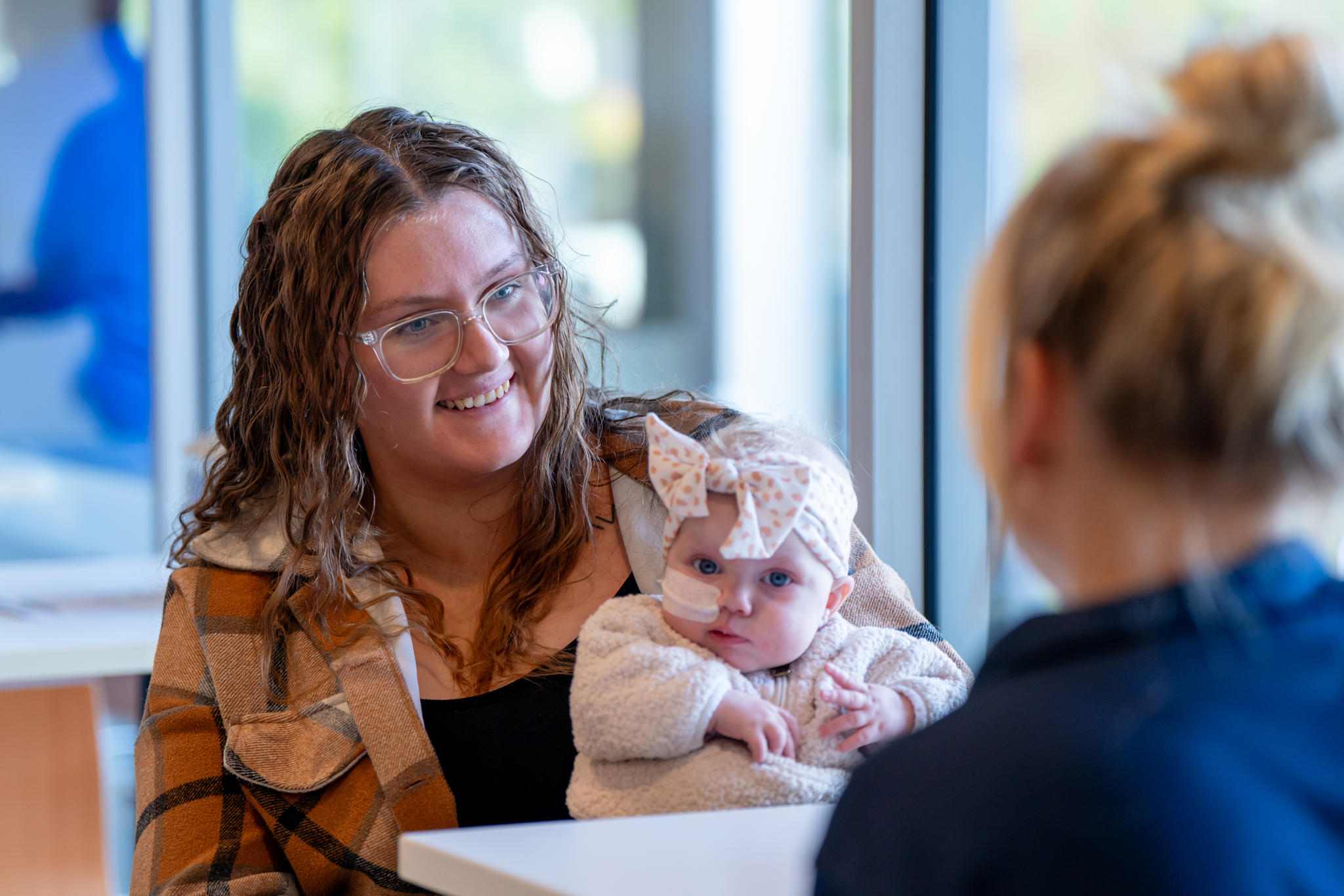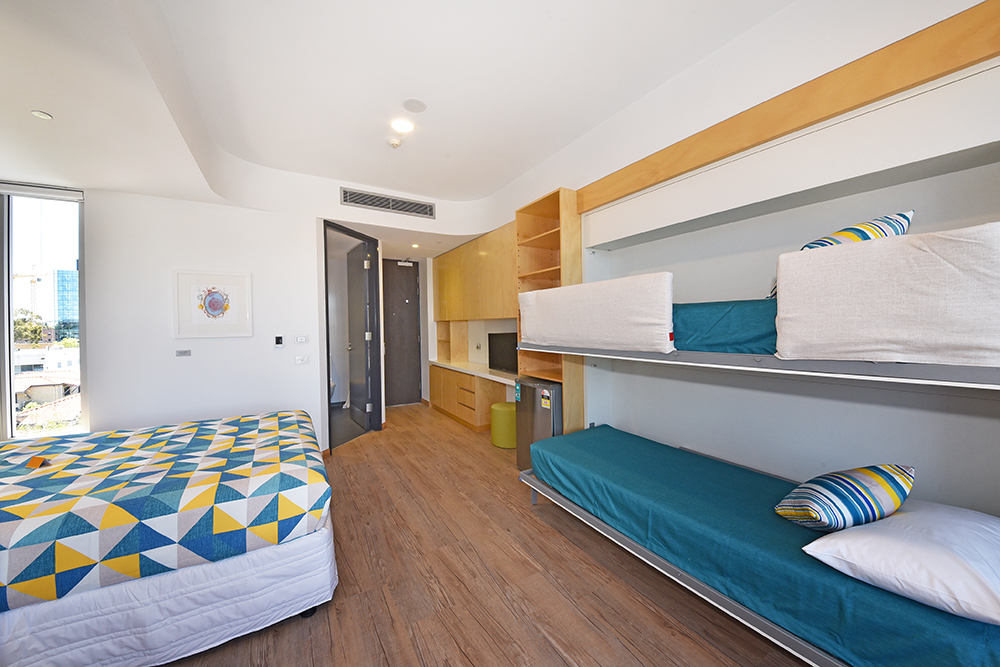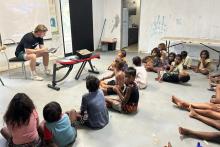New research has found that rough sleeping in Western Australia has increased 114 per cent since 2016, with 2,315 people currently rough sleeping across the state.


New research has found that rough sleeping in Western Australia has increased 114 per cent since 2016, with 2,315 people currently rough sleeping across the state.
The Bankwest Curtin Economics Centre’s (BCEC) latest Housing Affordability Report released in June 2025 also revealed that homelessness in WA had increased 8 per cent since 2016 and nearly 25,000 people were accessing specialist homelessness services in 2023-24.
Homelessness Week, running August 4 to 10, serves as an opportunity for the Australian community to take action on the issue, whether by spreading awareness, contributing to solutions, or supporting organisations delivering homelessness services.
The 2025 theme of ‘Homelessness Action Now’ was selected to raise the alarm of the urgency of rising homelessness rates coupled with the rental and housing crisis.
Ronald McDonald House Charities Western Australia and Foodbank WA are two organisations playing significant roles in supporting families in crisis and helping them to avoid the devastating cycle of homelessness.
Ronald McDonald House Charities WA’s services include supported accommodation which enable health service partners to deliver care while the family plays an active role in their child’s health journey and recovery.
These essential services remove barriers, strengthen families and promote healing when children need health care far from home.

Ronald McDonald House Charities WA provided 19,540 nights of accommodation to nearly 1,900 families with ill or injured children in 2024.
For example, a regional family with a child requiring a tonsillectomy – a relatively common pediatric procedure – will need access to Ronald McDonald House Charities WA’s supported accommodation for a minimum of two weeks, as patients are required to be in close proximity to Perth Children’s Hospital post-procedure.
Meanwhile, a child with a cancer diagnosis may need accommodation for potentially three months up to three years, depending on the nature of the treatment and the severity of the diagnosis.
During Perth's housing crisis, it is comforting to know that a family can stay at a Ronald McDonald House for as long and as frequently as they need.
Ronald McDonald House Charities WA has a ‘no family turned away’ policy aiming to relieve the pressures for families growing through the worst times by providing the comforts of home including a home-cooked meal every night at no cost to families.
However the number of families reaching out for assistance continues to rise each year.
Due to growing demand currently outweighing Ronald McDonald House Charities WA’s capacity, the charity commenced conversations with the state government in 2019 about the dire need to expand its services.
Four years later in 2023, the state government committed $9.6 million in partnership with Lotterywest and the Stan Perron Charitable Foundation to establish the first phase of an expansion strategy.
This involved opening the charity’s temporary Ronald McDonald House on Park facility to provide accommodation for an additional 50 families each night.
The state government provided a further $2.5 million to Ronald McDonald House Charities WA in June 2024 to support a business case and development plan for phase two: a major permanent extension of Ronald McDonald House at QEII, with the aim to accommodate an additional 75 families a night.
The business case and development plan were finalised and submitted to the WA government in March 2025, with confirmation of the state’s support of the project still pending at the time of publication.
"[W]e provide a home away from home that ensures families from regional and remote Western Australia have quality accommodation, home cooked meals and the facilities they need to feel safe, supported and comfortable during some of the most difficult times." Ronald McDonald House Charities WA CEO Peter King
Ronald McDonald House Charities WA’s overarching purpose is to deliver a ‘home away from home’ that is safe, healthy and enjoyable for families, and in 2024 alone, the charity provided 19,540 nights of accommodation, including daily meals, to nearly 1,900 families with ill or injured children.
The organisation's annual impact report, released in early 2025, found that 91 per cent of families agreed or strongly agreed that not being able to access the House environment would have caused stress to their family wellbeing.
Additionally, 69 per cent of families stated that if they had not been able to stay at Ronald McDonald House, their finances would have been stressful or difficult to manage, representing a reflection of the immense cost of living pressures in WA.

Ronald McDonald House Charities WA offers rooms to accomodate the whole family.
One of the parents of a family that accessed Ronald McDonald House Charities WA’s accommodation services, who wishes to remain unnamed, said their family would have been stuck without the organisation’s support.
“I don’t know what we would have done without Ronald McDonald House WA to be honest,” they said.
“We didn’t know how long we would have been down there, paying for accommodation [and] we would have been in big trouble.
“I don’t know what people did before the House, we couldn’t even find accommodation because it was during holidays so there were no options close by.”
Ronald McDonald House Charities WA chief executive Peter King said that when a child becomes ill or injured, life can change in an instant.
“Western Australia is one of the most isolated health jurisdictions in the world, so when a child requires specialist medical care all roads lead to Perth,” Mr King said.
“We know that this can cause immense emotional and financial strain on families, even more so now with the increase of cost of living coupled with Perth’s limited rental vacancy rate.
“At no cost to families, we provide a home away from home that ensures families from regional and remote Western Australia have quality accommodation, home cooked meals and the facilities they need to feel safe, supported and comfortable during some of the most difficult times.”
Families should not choose between food and rent
Foodbank WA is a safety net for many people across WA doing it tough, by providing food and everyday essentials at a price far lower than any supermarket.
This service leaves individuals and families with more money in their budget to put towards paying their rent or mortgage, ultimately retaining their homes.
Foodbank WA chief executive Kate O’Hara said increased fuel, energy, insurance, rent, food and daily cost of living expenses often see individuals go without food and necessities to make sure their children and pets don’t.
“This means people are often skipping meals, reducing portion sizes or even going entire days without eating,” Ms O’Hara said.
“No one should have to choose between keeping a roof over their head and putting food on the table. We exist to bridge that gap.
“We want to empower households to stay in their homes, as they spend less on food without sacrificing quality and nutrition.”
"Helping you to adequately feed your family lets you focus on other aspects of life, such as paying that bill, buying that medication, changing your car tyres and keeping afloat. We are here to help." Foodbank WA CEO Kate O'Hara
In addition to selling food and essential items at a low cost to those in need, Foodbank WA provides educational programs to teach people skills to be more independent amid the cost of living crisis.
“Our passion extends beyond the provision of food with our various nom! nutrition and education program teaching people new skills on how to eat well to be well and supporting people to take steps with our partners to become self-reliant for the long term,” Ms O’Hara said.
“We know how quickly hardship can spiral into homelessness. So many people are just one flat car battery, an unexpectedly higher than normal bill and a kid's school trip away from being plunged into financial hardship which is why Foodbank WA works to keep people afloat.
“We’re here to give vulnerable Western Australians a chance to redirect small but critical parts of their budgets to where they need it most, helping them stay housed and avoid the cycle that traps so many.”

Foodbank WA provides food and essential items at a low cost to people at risk of or already experiencing rough sleeping.
The BCEC Housing Affordability Report 2025 found that 210,000 households view their housing as unaffordable – a 110 per cent increase in just three years, from 100,000 households in 2022.
Foodbank WA encourages people to reach out for help as soon as they recognise the first signs of financial struggle, to address the issue before it reaches a crisis point.
Ms O’Hara assured that community organisations existed to provide judgement-free advice and tangible assistance.
“Helping you to adequately feed your family lets you focus on other aspects of life, such as paying that bill, buying that medication, changing your car tyres and keeping afloat. We are here to help,” Ms O’Hara said.
“We are lucky to have a Financial Support Worker from the Financial Wellbeing Collective at the Foodbank WA Perth Airport site to assist customers with their needs onsite, five days a week for just over a year.
“For us, having a dedicated Financial Support Worker onsite to assist our customers has been invaluable.
“During the first six months of 2025, the service assisted 593 clients who listed cost of living pressures as their primary reason for financial hardship.”
Among those clients, 15 per cent reported that they lived in supported accommodation, in a caravan park, as a boarder, or even homeless.
“We want to help to keep people in their homes and help them out of their financial crisis,” Ms O’Hara said.














